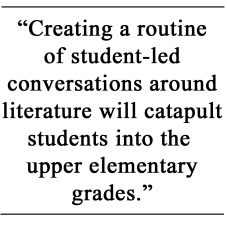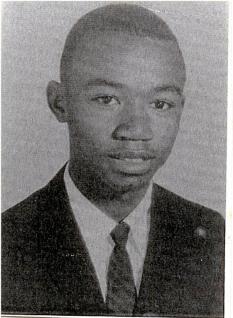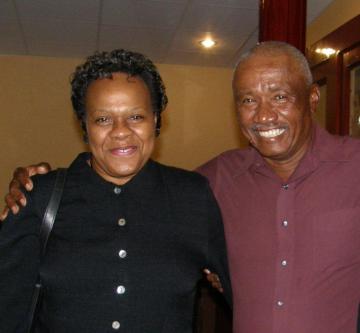new posts in all blogs
Viewing: Blog Posts Tagged with: Integration, Most Recent at Top [Help]
Results 1 - 5 of 5
How to use this Page
You are viewing the most recent posts tagged with the words: Integration in the JacketFlap blog reader. What is a tag? Think of a tag as a keyword or category label. Tags can both help you find posts on JacketFlap.com as well as provide an easy way for you to "remember" and classify posts for later recall. Try adding a tag yourself by clicking "Add a tag" below a post's header. Scroll down through the list of Recent Posts in the left column and click on a post title that sounds interesting. You can view all posts from a specific blog by clicking the Blog name in the right column, or you can click a 'More Posts from this Blog' link in any individual post.

By: Alice,
on 7/9/2014
Blog:
OUPblog
(
Login to Add to MyJacketFlap)
JacketFlap tags:
New Geography of Capitalism,
periphery,
capitalist,
multinational,
Books,
Current Affairs,
Finance,
europe,
economic crisis,
capitalism,
*Featured,
Business & Economics,
corporate capitalism,
eurozone,
global financial crisis,
Adam D. Dixon,
Firms,
money,
society,
integration,
Greece,
Greek economy,
Add a tag
By Adam D. Dixon
In early April 2014 Greece returned to the sovereign bond market raising 3 billion Euros, following a four-year hiatus. This marked a turning point in the global financial and economic crisis that began in 2008 with the collapse of the subprime mortgage market in the United States and the advanced-economy recessions that ensued. The Greek economy is certainly not healed, with unemployment still exceeding 25%, and a government debt burden still unnervingly high — it is expected to reach 175% of GDP this year. That the Greek government was able to issue bonds to international investors, likely didn’t provide any degree or sense of solace for the many Greeks still struggling to get by.
This story has been repeated across much of the advanced industrialized economies, from the United States to the United Kingdom, from Spain to Italy. We are told that most economies have turned the corner, even if there is some way to go before life feels normal again — hopefully before some other crisis takes hold. Now we can get back to focusing on crises of the longue durée. Will anything be done to reduce wage and wealth inequality? Will labor markets adjust to increasing automation and artificial intelligence? How will we adapt to climate change? Are we prepared for the peak of the baby boom retirement?
Some countries and some regions within countries will certainly fair better than others. There will be winners and losers. This is largely a reflection of the core-periphery model that characterizes the geography of capitalism and its developmental logic. The drivers of economic growth and development are not nation-states, but large regional agglomerations, which often span different countries, and the global production networks and global financial markets that connect them. But what does it mean to be a resilient country or region in an increasingly integrated and interdependent global economy?

The global financial crisis struck a blow to globalization, leading to some speculation that we could see the reemergence of a more fragmented world economy comparable to periods following other major crises (e.g. the Great Depression). For those critical of global capitalism, it was a chance for alternatives to emerge. Yet, if one looks at life in the major world cities or the boardrooms of multinational firms, the powerhouses of global capitalist integration, the remnants of crisis are hardly visible. Capitalism marches onward.
In the last few decades the barriers to cross-border capital flows and trade have been progressively removed, leading to growing opportunities for firms to outsource and offshore production. Moreover, the integration of capital markets has opened up financing possibilities that are global in scope. For multinational firms, and those in the service of multinational firms, history and geography are no longer constraints. Is the core anymore resilient than the peripheries, if they can’t ultimately claim and contain the drivers of growth? Are the winners this time around going to be the winners next time around?
At the height of the Eurozone crisis it was not uncommon to hear suggestions (and even outright demands) that periphery countries (e.g. Greece and Spain) leave the euro. Exit would facilitate recovery, resetting prices to competitive levels with trading partners. And it wouldn’t mean the end of the European project. But Greece nor any other periphery country has left the Eurozone. Even if they wanted to, would they have been allowed? Market expansion and integration is at the heart of capitalism. To be sure, a currency union is not a prerequisite to market expansion and integration.
The countries on the periphery didn’t leave, because they’ve become too integrated with the core. Economies do not start and stop at the political borders of the nation-state, even if the nation-state is still a crucial site of governance and regulation. There is certainly diversity among capitalist economies, reflecting history and geography. But increasing interdependence and integration mutes diversity. Yet, what increasing interdependence and integration means for capitalist diversity is less important than what it means for the losers of capitalist crises. As market expansion and integration is at the heart of capitalism, losers aren’t left to some alternative. They are re-integrated in the fold, even though they may be left on the periphery.
Adam D. Dixon is a senior lecturer in economic geography at the University of Bristol. His research focuses on comparative economic geography, the geography of finance, and the political economy of institutional investors. He is author of The New Geography of Capitalism: Firms, Finance, and Society, co-author with Gordon L. Clark and Ashby H.B. Monk of Sovereign Wealth Funds: Legitimacy, Governance and Global Power (2013, PUP), and co-editor with the same of Managing Financial Risks: From Global to Local (2009, OUP).
Subscribe to the OUPblog via email or RSS.
Subscribe to only business and economics articles on the OUPblog via email or RSS.
Image credit: “Money coins currency metal old historically pay” by Weinstock. Public domain via pixabay.
The post Capitalism doesn’t fall apart appeared first on OUPblog.


By:
Hannah,
on 9/16/2013
Blog:
The Open Book
(
Login to Add to MyJacketFlap)
JacketFlap tags:
common core standards,
CCSS,
Curriculum Corner,
ELA common core standards,
listening and speaking standards,
Reading Standards,
writing standards,
reading,
Civil Rights,
guest blogger,
integration,
close reading,
Add a tag

 Katherine Ali is a dual-certified elementary and special education teacher. She recently graduated as a literacy specialist with a Masters in Science from Manhattanville College. She has experience teaching internationally in northern China and now teaches in the Bronx, NY.
Katherine Ali is a dual-certified elementary and special education teacher. She recently graduated as a literacy specialist with a Masters in Science from Manhattanville College. She has experience teaching internationally in northern China and now teaches in the Bronx, NY.
In order to be active participants in the literate world, students must be reading, writing, speaking, and listening at all ages. The natural interplay of language looks slightly differently across grades levels, but the foundations and mission are the same:
Reading: Text Complexity and the growth of comprehension
We want our students to ascend the staircase of text complexity and simultaneously sharpen their comprehension skills. Students, of all ages, need to build stamina through independently reading more rigorous and complex texts. Additionally, read-alouds allow students to access content and concepts they may not be able to decode themselves.
Writing: Text types, responding to reading, and research
Opinion pieces, research-based projects, and narratives are the three main categories of student writing the Common Core State Standards focus on. It is also imperative that our students engage in the writing process and expand their writing style using the conventions of the English language.
Speaking & Listening: Flexible Communication and Collaboration
Speaking and Listening in each grade level includes but is certainly not limited to presentations, group work, and class discussion. Students need to be aware of their oral language skills and communicate their thoughts and research appropriately. Building off other students’ ideas is also an important component in developing these skills.
Last week, I explained what what it looks like to integrate reading, writing, speaking, and listening in grades K-1, using the book Rainbow Stew as an example. This week, I take a look at grades 2-3:
 As Fast As Words Could Fly by Pamela M. Tuck, illus. by Eric Valesquez
As Fast As Words Could Fly by Pamela M. Tuck, illus. by Eric Valesquez
Interest Level: 2 -7
DRA: 34, Guided Reading Level: O
Reading: Doing a close read with students of As Fast As Words Could Fly fulfills the Common Core’s shift up the staircase of text complexity and builds strong vocabulary skills. Words such as refused, boasted, disbelief, barricaded, grimaces, and blurted are rich and valuable for second and third graders to read and understand. This text is also an excellent model of the use of dialogue. Through close reading activities students can highlight the dialogue and the speaker to understand the different ways to properly punctuate dialogue in a narrative. Of course, teachers can also read this story aloud so students can connect to the themes of perseverance and overcoming adversity.
Writing: Tuck’s writing style is strong and complex. She uses compound sentences, prepositions, and onomatopoeia throughout the story creating a very sophisticated narrative. Teachers can focus on one of these skills in a Writing Workshop model in which students translate the skill into their own writing. Mason’s story also evokes different opinions and feelings that lead to rich discussion. Use these discussion questions as a guide and encourage students to write a Reader’s Response and to share their responses  with the class.
with the class.
Speaking & Listening: By second and third grade, students should be developing their formal presentation skills, therefore they may share Mason’s story through a presentation about influential people who took risks (complement the study with this interview with Moses Teel Jr., whose experience as a teenager during integration was the basis for Mason’s story).
Students also need to learn to lead discussions. Assign a group of students to be the leaders of an interactive read-aloud and have them come prepared with various questions they developed in advance with the classroom teacher. Creating a routine of student-led conversations around literature will catapult students into the upper elementary grades.
Stay tuned next week, when I discuss how to integrate reading, writing, speaking, and listening standards for grades 4-5 using Bird.
Filed under:
Curriculum Corner,
guest blogger Tagged:
CCSS,
Civil Rights,
close reading,
common core standards,
ELA common core standards,
integration,
listening and speaking standards,
reading,
Reading Standards,
writing standards 


By:
Amanda,
on 9/11/2013
Blog:
The Open Book
(
Login to Add to MyJacketFlap)
JacketFlap tags:
interview,
Civil Rights,
guest blogger,
typewriters,
overcoming obstacles,
integration,
African American history,
Musings & Ponderings,
Pamela M. Tuck,
As Fast As Words Could Fly,
historical interest,
Add a tag
 As Fast As Words Could Fly tells the story of Mason, a teenager growing up in North Carolina who becomes one of the first black students to attend an all-white high school. In this guest post, we interview author Pamela M. Tuck’s father, Moses Teel Jr., whose experience during integration inspired the New Voices award-winning title.
As Fast As Words Could Fly tells the story of Mason, a teenager growing up in North Carolina who becomes one of the first black students to attend an all-white high school. In this guest post, we interview author Pamela M. Tuck’s father, Moses Teel Jr., whose experience during integration inspired the New Voices award-winning title.

Moses Teel Jr. around the same age as Mason in As Fast As Words Could Fly
Lee & Low: In the Author’s Note, it says that you used your “typing talent to defy the prejudices of people who considered [you] inferior.” Did you also participate in a typing contest similar to the one Mason was in? What was that experience like?
Moses Teel Jr.: Yes. In my typing class, we had five-minute timed typing exercises. Five strokes counted for one word and every error took one word away from your total word count. I participated in a lot of these classroom competitions and won. That’s what helped me qualify for the tournament. By the time I had to compete, I felt pretty confident in my skill and I stayed focused by telling myself, “I can do this.”
L&L: How did you handle the hardships you encountered while at Belvoir-Falkland High School? Was there a piece of advice that you were given that inspired you? What advice would you give others who experience some form of prejudice directed toward them?
MT: The encouragement from my family and other members of the civil rights group helped me handle the hardships I faced. My dad had sacrificed a lot during the Civil Rights Movement so as to make a difference. Integrating the schools was one of the most important parts of the Civil Rights Movement in Pitt County during that time. By the time I started Belvoir-Falkland High School, I knew I had to remain humble in order to stay there. I went there for a better education, so I could make a difference in my community.
I can remember one black custodian at the school who inspired me. He would catch me and some of the few other black students outside the school to tell us that he was so proud of us for coming to that school to knock down some barriers. He told us to keep our heads up and to do the best we could.
My advice to others is to realize that prejudice does exist and you’re going to have to deal with it one on one. Just remember to stay humble and treat people the way you would like to be treated. Then you will be able to work your way through it.
L&L: Mason’s story takes place in the mid 1960s, a decade that saw the historic March on Washington, the Birmingham campaign, and the Freedom Summer of 1964. As a teenager, how strong was your sense that you were part of a greater national movement for equality?
 MT: I was well aware that we were part of a national event. During that time, we had gone to a meeting to hear Dr. Martin Luther King Jr. speak, and in part of his speech he told us to go back to our communities and make a difference. By my family being the first to integrate the school system, we felt stronger knowing that we were taking part in an integration movement that was happening all over the country.
MT: I was well aware that we were part of a national event. During that time, we had gone to a meeting to hear Dr. Martin Luther King Jr. speak, and in part of his speech he told us to go back to our communities and make a difference. By my family being the first to integrate the school system, we felt stronger knowing that we were taking part in an integration movement that was happening all over the country.
L&L: Who were your role models growing up? How did these individuals influence your actions?
MT: Two of my role models were Golden Frinks and Reginald Frazier. Golden Frinks was a field secretary for the SCLC (Southern Christian Leadership Conference). I realized how powerful Mr. Frinks was when we visited places that wouldn’t serve blacks, but after mentioning his name, attitudes changed and we were served. Reginald Frazier was a powerful attorney during that time period and I remember when he represented a black family during a racial case. The family couldn’t afford a lawyer, so he took the case for $1 and won.
These two men showed me how their determination to fight for equality could make such a difference, and how justice was more important than money. It was people like them who made me believe that with the right education, I could obtain justice in society.
L&L: When you first began at Belvoir-Falkland High School, was there anyone who surprised you with his or her kindness? Were there other African Americans who you befriended at the school or were you the only one?
MT: I’m afraid I’ll have to say no, there wasn’t, other than the black custodian. I didn’t receive much kindness from the students or faculty at Belvoir-Falkland. There were other black families who also had their children integrating during the same time, and the few of us watched out for one another. We had to stay to ourselves during physical activities because during the pick-up games we were never chosen to play with the white students. In later years, as we remained at the school, we began to be included in more activities.
L&L: Although we now have our first African American president, we still live in a country plagued by many types of inequality. How far do you think our country has come since you were a teenager in the 1960s? Where do you hope we will be ten years from now?
MT: I feel that we have improved about 70% in correcting some inequalities, but there are still a lot of hidden prejudices that have to be dealt with. I hope that ten years from now I can say we have improved 90%.

Moses Teel Jr. and his wife, Pauline Teel
Filed under:
guest blogger,
Musings & Ponderings Tagged:
African American history,
As Fast As Words Could Fly,
Civil Rights,
historical interest,
integration,
interview,
overcoming obstacles,
Pamela M. Tuck,
typewriters 


By: Nicola,
on 2/9/2012
Blog:
OUPblog
(
Login to Add to MyJacketFlap)
JacketFlap tags:
patriotism,
Current Affairs,
europe,
positivity,
mccormick,
nationalism,
integration,
EU,
financial crisis,
euro,
secularism,
*Featured,
Business & Economics,
eurozone,
europeanism,
john mccormick,
multilateralism,
sustainable development,
welfarism,
westphalian,
europeans,
Add a tag
By John McCormick
Few times have been worse than the present to say anything good about the European Union (EU). It has faced many crises over the years, but none have been as serious as the current problems in the eurozone. Since news first broke of the difficulties in Greece in late 2009, pundits and political leaders have been falling over themselves in their efforts to ratchet up the language of doom and gloom. Under the circumstance, euro-optimists might be well-advised to lay low, and certainly they seem hard to find at the moment.
And yet this is the very time to remind ourselves of the achievements of the EU, because if we are to make sensible choices about where we go from here, we will need to have a clear idea of both its successes and its failures. Whatever happens to the euro, the EU is obviously on the brink of some major changes, generated not just by its immediate problems but also by some broader political and philosophical questions about the meaning and purposes of the European project.
Critics have focused on numerous themes in their recent attacks on the EU, among which is the recurring question of just what it means to be European. The EU is regularly accused of lacking clear purpose, and conventional wisdom suggests that Europeans have too little in common to weather the crises. After decades of convergence, we are now often told that Europeans are moving apart, with a growing backlash against European integration and – more specifically – a right-wing reaction against immigration, and talk of the failure of multiculturalism.
In truth, however, Europeans have a great deal in common , but they are often the last to realize this because they are repeatedly told about their differences, and the EU is repeatedly castigated for its lack of leadership and its failure to make a mark as an actor in the international system. The result is that many can no longer see the wood for the trees. It is only when we compare the European experience with that of other parts of the world that the patterns begin to emerge.

One of the clearest examples of Europeanism (if we understand this term as meaning the distinctive set of values and preferences that drive choices and preferences in Europe) is its secularism. Where support for organized religion is growing in almost every other part of the world, in Europe it is declining, and this is impacting the way Europeans think about politics, science, social relations, and moral questions.
Another example is offered by the redefinition of the role of states. It was in Europe that the Westphalian state system was born, and yet Europeans since the end of the Second World War have been reviewing their association with states: more are thinking of themselves as Europeans, while identity with nations has been growing. Meanwhile, Europeans have been rejecting traditional notions of patriotism, which – thanks to its long association with nationalism – has a bad reputation in Europe.
On the international front, the Europeanist model is notable for its support of civilian over military means for dealing with threats to security, its support for multilateralism over unilateralism, a
Now Playing -
Running Down a Dream by Tom Petty
Life -
It was all going so (Semi) well.... My mom and brother moved into the basement, our schedules were mostly meshing and we'd even started introducing the dogs to each other without teeth and hair flying.
Then Lindsay and I had to go back to work. We put Ludo and Pooka in their kennels like usual and left. Apparently, Pooka took it upon










[…] In this series, I’ve looked at: Integrating reading, writing, speaking, and listening in grades K-1 Integrating reading, writing, speaking, and listening in grades 2-3 […]